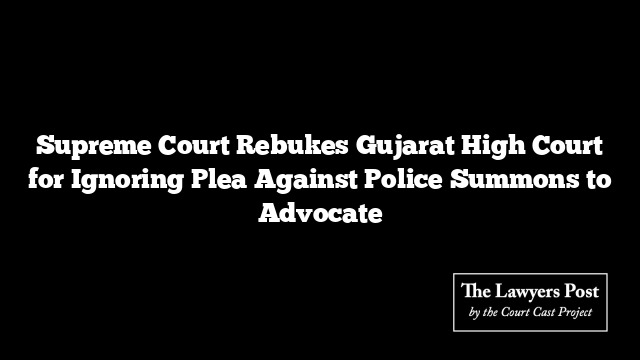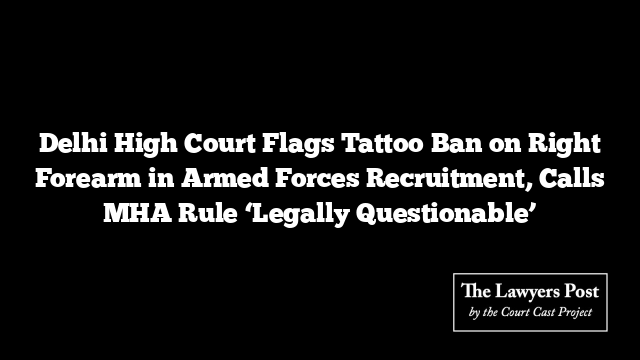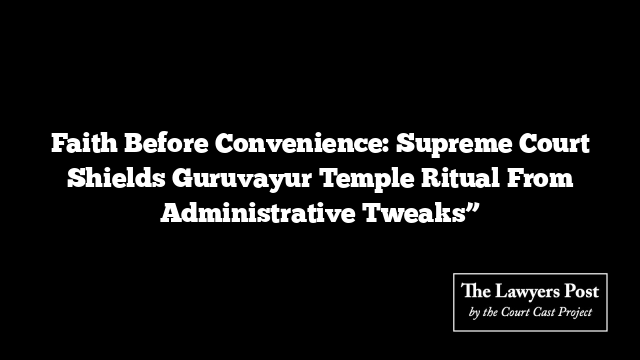The Supreme Court has come down heavily on the Gujarat High Court for refusing to quash a police summons issued to an advocate who had merely represented an accused in a criminal case. The apex court described the High Court’s inaction as a “clear abdication of its inherent powers.”
A bench comprising Chief Justice of India BR Gavai, Justice K Vinod Chandran, and Justice NV Anjaria delivered the ruling while hearing a suo motu case concerning the arbitrary summoning of advocates by investigating agencies. The judges stressed that such actions strike at the foundation of legal representation and the confidentiality between a lawyer and their client.
The Court categorically held that investigative authorities cannot summon lawyers merely to extract details about their clients. Such summons, it said, are illegal unless they fall within the limited exceptions provided under Section 132 of the Bharatiya Sakshya Adhiniyam (BSA).
The case arose after Gujarat Police summoned an advocate who had appeared for an accused. When the lawyer challenged the summons before the High Court, the plea was dismissed—prompting the Supreme Court’s strong intervention.
“We are surprised that the High Court, being a Constitutional Court, refused to exercise its jurisdiction under Section 528 of the BNSS. The summons issued to the advocate were in blatant violation of the law,” the judgment authored by Justice Chandran noted.
The bench further observed that the High Court’s reasoning—that the investigation had stalled because the advocate failed to respond—was “flawed, erroneous, and contrary to the very idea of judicial oversight.” It warned that compelling advocates to disclose client details breaches fundamental protections, including the right against self-incrimination and the right to effective legal representation.
Emphasizing that the relationship between an advocate and client forms a cornerstone of justice, the Court announced that fresh guidelines would soon regulate the handling of documents and digital devices belonging to advocates, ensuring that client confidentiality remains inviolable.





